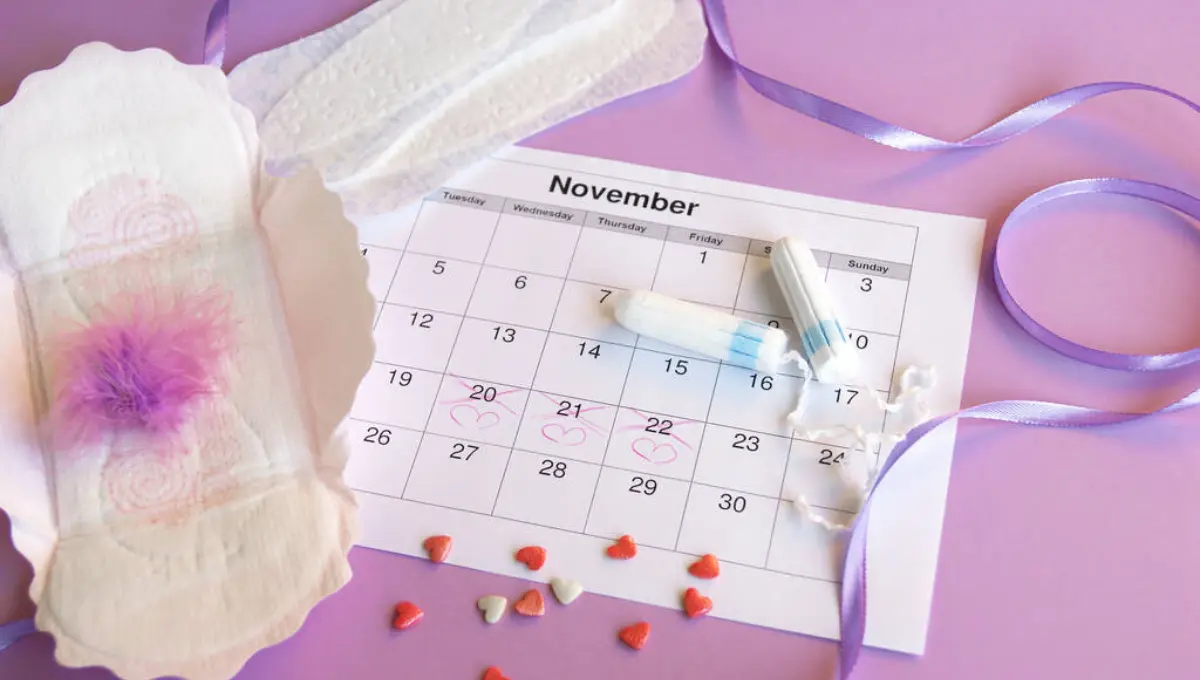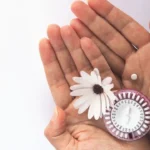
Getting pregnant is an exciting journey for many couples, but it often raises questions about the optimal frequency of sexual intercourse to maximize the chances of conception. While there is no perfect answer to this question, understanding your menstrual cycle, fertility signs, and other factors can help you determine how often you should have sex to increase your odds of getting pregnant. In this comprehensive guide on PregnancyBoss, we’ll explore how often to have sex to get pregnant and various factors that influence fertility and provide you with valuable insights to assist you on your path to parenthood.
Related: Tips to Prepare Your Body for Pregnancy
Key Takeaways
Before diving into the details, let’s take a quick look at some key takeaways:
- Understanding your menstrual cycle is crucial for optimizing the timing of intercourse.
- Tracking fertility signs such as cervical mucus and basal body temperature can help pinpoint your fertile window.
- Couples trying to conceive should aim for regular, well-timed intercourse, typically every 2 to 3 days during the fertile window.
- Stress management and a healthy lifestyle can positively impact your fertility.
- Consult a healthcare professional if you’re experiencing difficulties conceiving after a year of regular, unprotected intercourse.
Now, let’s delve deeper into the topic of how often you should have sex to get pregnant.
Menstrual Cycle Basics

The menstrual cycle plays a pivotal role in determining when you can conceive. A typical menstrual cycle lasts about 28 days, although variations are common. To understand when you’re most fertile, it’s essential to grasp the different phases of your cycle:
Menstrual Phase (Days 1-5)
The menstrual phase, also known as menstruation, marks the shedding of the uterine lining. Pregnancy is unlikely during this time.
Follicular Phase (Days 1-13)
The follicular phase begins on the first day of your period and can last up to 13 days. It’s characterized by the development of follicles in the ovaries, one of which will release an egg during ovulation.
Ovulation (Day 14)
Ovulation is a pivotal moment in your cycle. It’s the brief window when a mature egg is released from the ovary and can be fertilized by sperm.
Luteal Phase (Days 15-28)
The luteal phase follows ovulation and typically lasts around 14 days. During this time, the uterine lining thickens in preparation for potential implantation of a fertilized egg.
Understanding your menstrual cycle and identifying when you ovulate is essential for timing intercourse effectively. Ovulation usually occurs around the middle of your cycle, typically on day 14 for those with a 28-day cycle. However, cycle lengths vary, so tracking your cycle and fertility signs is key.
Related: Salt Pregnancy Test: Myth or Miracle?
Tracking Fertility Signs
To determine the best time to have sex for conception, you can rely on several fertility signs:
1. Cervical Mucus
Cervical mucus changes throughout your cycle. When you’re approaching ovulation, your cervical mucus becomes clear, slippery, and stretchy, resembling egg whites. This fertile mucus promotes sperm survival and mobility, making it an excellent indicator of your fertile window.
2. Basal Body Temperature (BBT)
Your basal body temperature is your body’s resting temperature when you wake up in the morning. Before ovulation, your BBT is relatively low, but it rises after ovulation due to hormonal changes. Tracking your BBT over several cycles can help you pinpoint your most fertile days.
3. Ovulation Predictor Kits (OPKs)
Ovulation predictor kits detect the surge in luteinizing hormone (LH) that precedes ovulation. When an OPK indicates a positive result, it suggests ovulation will likely occur in the next 24-36 hours, signaling a prime time for intercourse.
Related: How to Prepare for Pregnancy After 40?
How Often Should You Have Sex To Get Pregnant?
Now that you have a grasp of your menstrual cycle and fertility signs, the question remains: how often should you have sex to get pregnant? Here’s a guideline to help you plan:
Regular Intercourse
For couples with no known fertility issues, having regular intercourse every 2 to 3 days throughout your menstrual cycle can increase your chances of conception. This ensures that sperm is consistently available when you ovulate, increasing the likelihood of fertilization.
Targeting the Fertile Window
To maximize your chances further, concentrate your efforts on your fertile window. Start having sex a few days before you expect to ovulate and continue until a day or two after ovulation. This approach provides the best opportunity for sperm to encounter the egg.
It’s essential to remember that excessive intercourse can sometimes reduce sperm quality, so balance is key. Aim for regular, well-timed intercourse to optimize your chances without placing undue stress on either partner.
Related: 8 Best Ways To Avoid Pregnancy Naturally
Statistics on Frequency of Sex and Pregnancy
Research suggests that approximately 84% of couples who engage in regular sexual intercourse, occurring at least three times per week, are likely to conceive within one year of trying. Moreover, around 92% of couples are likely to achieve pregnancy within two years of trying. This indicates that having sex every other day or every three days during the fertile window can indeed significantly increase the chances of getting pregnant.
It’s important to note that individual fertility varies, and these statistics provide a general guideline. Some couples may conceive more quickly, while others may take longer. Additionally, factors such as age, health, and any underlying fertility issues can influence the time it takes to achieve pregnancy.
Lifestyle Factors Affecting Fertility
Your overall health and lifestyle choices can significantly impact your fertility. Here are some key factors to consider:
1. Diet and Nutrition
Maintaining a balanced diet rich in essential nutrients, such as folate, iron, and antioxidants, can support reproductive health. Limiting caffeine and alcohol intake is also advisable.
2. Exercise
Regular physical activity promotes general well-being but should be practiced in moderation. Excessive exercise can disrupt menstrual cycles and reduce fertility in some cases.
3. Stress Management
High levels of stress can interfere with ovulation and fertility. Incorporate stress-reduction techniques like yoga, meditation, or counseling into your routine.
4. Smoking and Alcohol
Both smoking and excessive alcohol consumption can negatively affect fertility. Quitting smoking and limiting alcohol intake can improve your chances of conceiving.
5. Body Weight
Maintaining a healthy body weight is crucial for fertility. Both underweight and overweight individuals may experience difficulties conceiving. Aim for a healthy BMI (body mass index) to optimize your fertility.
Related: Can You Take Mucinex To Get Pregnant?
What to do to get Pregnant Fast?

To increase the chances of getting pregnant, you can follow these evidence-based steps:
- Stop Using Birth Control:
- If you are actively trying to conceive, you should discontinue the use of any form of contraception, such as birth control pills, intrauterine devices (IUDs), contraceptive patches, or contraceptive injections. Keep in mind that fertility may take some time to return to normal after discontinuing certain forms of birth control, so it’s essential to be patient and allow your body time to adjust.
- Say No to Lubricants (in Some Cases):
- Some commercial lubricants can negatively affect sperm motility and function. If you are trying to conceive, it’s recommended to use fertility-friendly lubricants or consider alternatives like coconut oil or a small amount of water-based lubricant. However, many couples do not need lubrication during intercourse, so it’s essential to assess your specific situation and, if necessary, choose a lubricant that is fertility-friendly.
- Maintain a Healthy Lifestyle:
- Maintain a balanced diet rich in fruits, vegetables, and whole grains.
- Exercise regularly to maintain a healthy weight.
- Avoid smoking, excessive alcohol consumption, and recreational drugs.
- Track Your Menstrual Cycle:
- Determine the length of your menstrual cycle and identify when you’re ovulating. Ovulation typically occurs around the middle of your cycle.
- Use ovulation prediction kits or fertility tracking apps to pinpoint your fertile days.
- Have Regular, Unprotected Intercourse:
- Aim to have sex every 2-3 days throughout your menstrual cycle, especially during your fertile window.
- Maintain Good Sexual Health:
- Ensure both you and your partner are in good sexual health and free from sexually transmitted infections (STIs).
- Manage Stress:
- High levels of stress can affect fertility, so practice stress-reduction techniques like yoga, meditation, or deep breathing exercises.
- Consider Preconception Check-ups:
- Both partners should consider a preconception check-up with a healthcare provider to ensure you are in good health for pregnancy.
- Know When to Seek Help:
- If you have been trying to conceive for a year (or six months if you are over 35) without success, consult a fertility specialist or reproductive endocrinologist to identify any underlying issues.
- Address Potential Fertility Issues:
- If fertility issues are identified, follow the recommended treatments or interventions, which may include medications, lifestyle changes, or assisted reproductive technologies like in vitro fertilization (IVF).
- Consider Timing:
- Keep in mind that it can take time to conceive, and it may not happen immediately. Be patient and persistent.
Tables with Relevant Facts
Here are some essential facts to keep in mind:
| Fact | Impact on Fertility |
|---|---|
| Age matters: Women under 35 have a higher likelihood of conceiving each cycle. | Fertility decreases with age, notably after 35. |
| Sperm lifespan: Sperm can live inside the female reproductive tract for up to five days. | Having sex before ovulation can still result in conception. |
| Irregular periods: If you have irregular cycles, tracking ovulation may be more challenging. | Consider using ovulation predictor kits or consulting a healthcare professional. |
Frequently Asked Questions (FAQs)
Can having sex every day improve my chances of getting pregnant?
Having sex every day may not be necessary and can lead to fatigue and reduced sperm quality. It’s generally recommended to have sex every 2 to 3 days, especially during your fertile window.
What if I have a irregular menstrual cycle?
If you have irregular periods, it can be more challenging to predict ovulation. Consider using ovulation predictor kits or consult a healthcare provider for guidance.
How long should I try to conceive before seeking medical help?
Couples under 35 should try for at least a year before seeking medical assistance. If you’re 35 or older, consult a healthcare provider after six months of trying.
Can you get pregnant if you have sex during your period?
Can you get pregnant if you have sex right after your period?
Conclusion
In the journey towards parenthood, understanding how often you should have sex to get pregnant is just one piece of the puzzle. Tracking your menstrual cycle, recognizing fertility signs, and maintaining a healthy lifestyle can significantly boost your chances of conceiving. Remember that patience and consistency are key, and don’t hesitate to seek medical guidance if needed. With the right knowledge and approach, you’re on your way to welcoming a new addition to your family.












